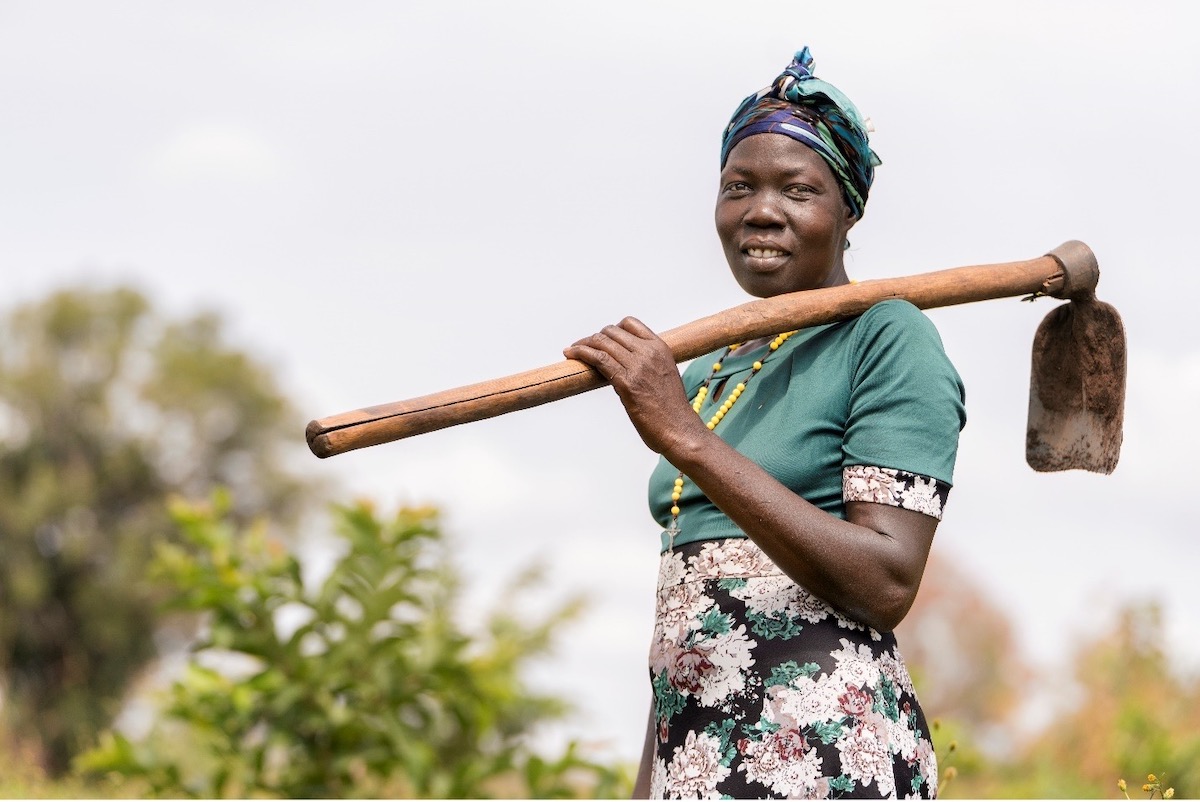Supporting refugees and host communities in Uganda to increase agricultural productivity and build resilience to climate change risks
Date:

As the impacts of climate change continue to intensify, refugees and their host communities are feeling the brunt of these shocks. Deforestation and environmental degradation are hitting hard, especially in the refugee hosting districts in the West Nile region in Uganda. This is causing increasing tension between refugees and the host communities. Both populations are largely dependent on natural resources such as grass and wood for shelter and harvesting of forest products, stone quarrying, sand mining, brick laying and charcoal burning for income generation. This unsustainable use of natural resources has contributed to environmental degradation, increased tension between the refugees and the host communities but has also affected farmers like Florence Driciru, who depends on land for her livelihood.
“The yields have been poor lately. The rains most times come late and when you plant you don’t get much,” says Florence, a mother of five living in the host community of Kochi Subcounty in Yumbe District.
In 2021, UN Women, with funding from the Government of Japan, partnered with the Yumbe District Local Government to support farmers in the refugee and host communities to improve their farming practices. Through this support, 1,000 farmers in Yumbe and Adjumani districts gained new skills in farming and received higher yielding crop varieties.
“Before this project many of us were used to traditional farming practices without knowing that this leads to poor yields. We used to do seed broadcasting and would start weeding almost after one or sometimes two months. By then the crops would have choked on weeds and competed with the weeds for nutrients which would result in poor yields,” Florence explains.
“After the training, I now mostly use line planting and weed my crops two weeks after planting to avoid weeds. I tried out this new farming method and planted the 500 kgs of green grams that I received from the district local government and I was able to harvest 2,150 kgs. The seed was of good quality and when I applied the methods I learned from the trainings, it led to a good yield.”
Florence belongs to a group of farmers in her community who were jointly supported with trainings in climate smart agriculture, better seed varieties particularly green gram and fruit trees (guavas and mangoes). The group has planted 25 acres of guavas and mangoes.
“As a group our dream is to establish a grain store in the community,” says Florence, “That way we are able to store the green gram and sell collectively, which enables us to bargain for a better price. We would also like to have skills in value addition so that we can process the guavas and mangoes and fetch a better price instead of selling them as fruits where the earning is low. For now, since we don’t have the skills yet, we plan to sell them in the local market.”
By 2030, food demand is projected to increase by 55 per cent. Supporting farmers like Florence not only enables them to be food secure, but guarantees them a source of livelihood since most rural populations in Uganda are dependent on agriculture.